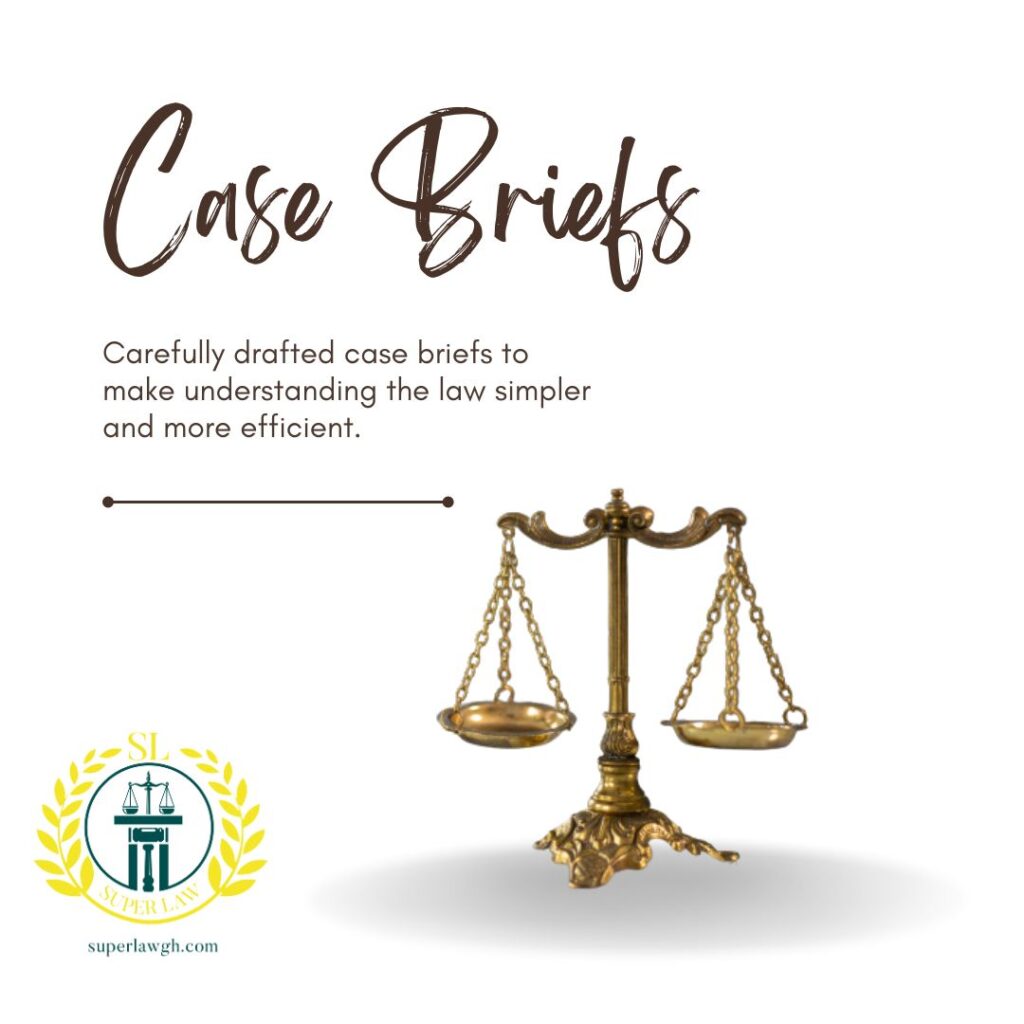Mohammed Addul Rahim Baba Salifa, the applicant, was sent to live with a guardian in Guinea for schooling in 1965. The applicant suffered ill-treatment from his guardian and escaped to Sierra Leone. In Sierra Leone, he sought the assistance of the Ghana High Commissioner to help him return to his parents in Accra.
In or about June 1965, he returned to Ghana but on his arrival, he was immediately detained by the police until the date of the present case. His father then filed the instant application praying for an order for habeas corpus directed against the Director of Prisons and the Director of Special Branch for the immediate release of his son, Salifa.
Counsel for the applicant contended on his behalf that the press release dated 24th April 1968 by the Ministry of Information shows clearly that nobody was still in protective custody.
He further argued that the document which the Director of Prisons purported to be a photostat of a National Liberation Council decree, which sought to be the lawful ground for the detention could not be an enactment because it did not have a number. And it had not been published in the Gazette as had been all known NLC decrees.
He contended that the omissions were in contravention of the law as provided by sub-paragraph (6), (7), (9), (10) and (11) of paragraph 3 of the Proclamation as amended by paragraph 16(a) of NLCD 73.
He further contended forcefully that the prisoner was entitled to be discharged by virtue of Section 4 of the Habeas Corpus Act, 1964 (Act 244), as there was no legal justification for the detention.
The State Attorney and later the Principal State Attorney, arguing for the Republic, contended that once the decree was signed by the Chairman of the NLC, it was valid even without publication in the Gazette. And he submitted that a decree could be a decree notwithstanding that it had not been published.
It was further argued on behalf of the Republic that the NLC had unlimited power. Again, it was submitted that a contention on the validity or invalidity of the alleged decree would amount to questioning whether an enactment was made in excess of the powers conferred on the authorities responsible for making such enactments. And such a contention must rather be directed to the Court of Appeal.
- Whether or not a contention of the validity or invalidity of the alleged decree amounts to questioning of the power that enacted it?
- Whether or not the alleged decree is a decree in the eyes of the law?
- Whether or not the NLC had unlimited powers?
- Whether or not habeas corpus will issue?
- A contention of the validity or invalidity of the alleged decree does not amount to questioning of the power that enacted it.
- The alleged decree is not a decree in the eyes of the law.
- The NLC did not have unlimited powers.
- Habeas corpus will issue.
The trial Judge reasoned that even though he agreed that a decree was equal to an Act of Parliament, the contention of the applicant was to the effect of whether the decree or an Act was a decree or an Act at all. The case of the applicant is not questioning the content of the decree or the Act. The matter does not affect whether the power that enacted the decree was exercised ultra vires or in excess but whether it was actually enacted at all. Therefore, there was no need to refer the matter to the Court of Appeal.
The court found that the document purported to be a photostat copy of a decree was not a decree in the face of the law. It did not conform to the provisions of the Proclamation. That is, the decree was not numbered and published- condition precedents to the enactment of NLC decrees.
The argument that the decree was signed by the Chairman of NLC and therefore qualified to be a valid decree notwithstanding the numbering and publication in the Gazette was not accepted by the Court.
The Court further reasoned that the NLC Proclamation provided for the eradication by the NLC of illimitability of power in Ghana, and, therefore, dismissed in limine the last argument of the learned Principal State Attorney that the NLC have by the Proclamation unlimited power, for autocracy in Ghana was given a decent burial on 24th February 1966.The NLC could not, therefore, have unlimited power.
Since the content of the press release by the Ministry of Information had not been challenged with regard to the source, there was an established law that the detainee in this case, like those detained, should have been released.
In the circumstances, the applicant had been unlawfully detained not because the authorities had no discretionary power to detain him but because such discretionary power had been exercised detaining him in a manner otherwise than was lawfully permitted under the provision of the law as laid down by the Proclamation by the NLC.
An application for an order of habeas corpus granted.
[1] Republic v. Director of Special Branch; Ex Parte Salifa [1968] GLR 646-666
“

